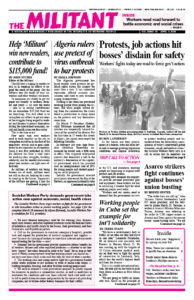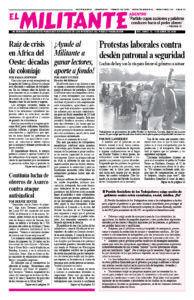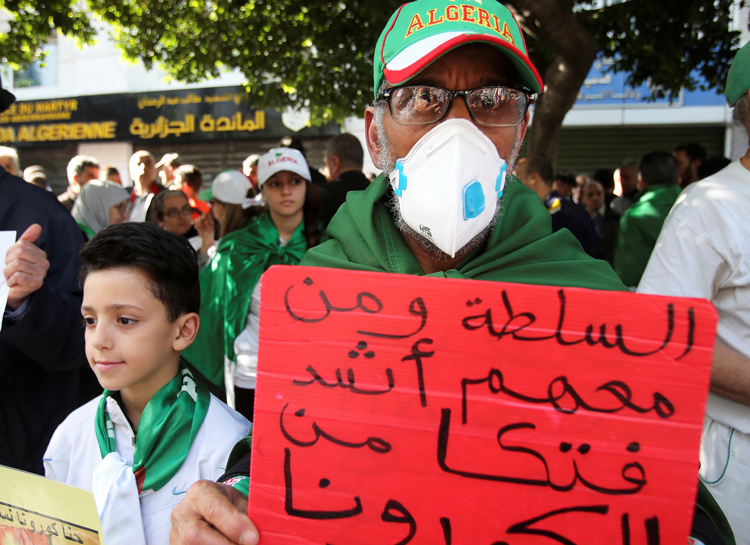The Algerian government has faced weekly street protests for political rights across the country for more than a year. It has unleashed repression, offered cosmetic concessions and tried to sow divisions among demonstrators.
Nothing it has done has prevented working people from joining the actions. But when people started dying from the coronavirus the rulers found a justification to clamp down on the protests and buy themselves some time.
On March 17 President Abdelmadjid Tebboune announced that all marches are temporarily banned because of the spread of the disease. For the first time in 57 weeks the streets of Algiers, the capital, were empty the following Saturday.
In February last year, then President Abdelaziz Bouteflika announced he would seek a fifth term in office. This triggered widespread protests that demanded a halt to the military’s domination of the capitalist government, which has presided over an unemployment rate of 28% for young people and slashed spending on social programs.
Initially the government arrested participants who waved the flag of the Berbers, an oppressed nationality who have fought for national and language rights for decades. When that didn’t quell the actions authorities arrested thousands of others, saying they were leaders of the protests.
In April army chief Gen. Ahmed Gaed Salah urged Bouteflika to resign, which he did within hours. Then the army postponed elections. Gaed Salah assumed the role of the public face of the regime, presenting the decisions of the government.
Protests demanding the whole regime step down continued. The arrests of figures linked to Bouteflika did nothing to stop them. Calls for Gaed Salah’s resignation and for the army to stay out of politics started appearing. In September the government set elections for December. The election campaign took place while big marches in the streets continued and many prominent figures in the protests urged a boycott. With a turnout of some 40%, former Prime Minister Tebboune was elected president.
According to the Algiers Herald, authorities had tried to shut down the protests on the four Saturdays preceding the March 17 ban. Security forces were deployed from the morning hours, and when protesters showed up in the early afternoon cops chased them across the city center in Algiers, “beating and arresting passers-by,” the paper reported. When demonstrators tried to start the march, they were charged by the police.
As the virus has spread the government closed schools and universities and banned incoming flights from some European countries. A week before the ban on demonstrations, the president suspended “meetings and gatherings of a cultural, economic, political and sporting nature.” Despite this, hundreds of people were back in the streets of the capital three days later.
There were differences of opinion among those who have joined the protests about whether to pause them or not. “I think Tebboune said something reasonable. Health is our top priority in these circumstances,“ Djamel Aziz, a student who has marched every week, told Reuters March 17. Teacher Mohamed Hachimi, on the other hand, said, “The system is trying to use coronavirus as an argument to end our revolution.”


